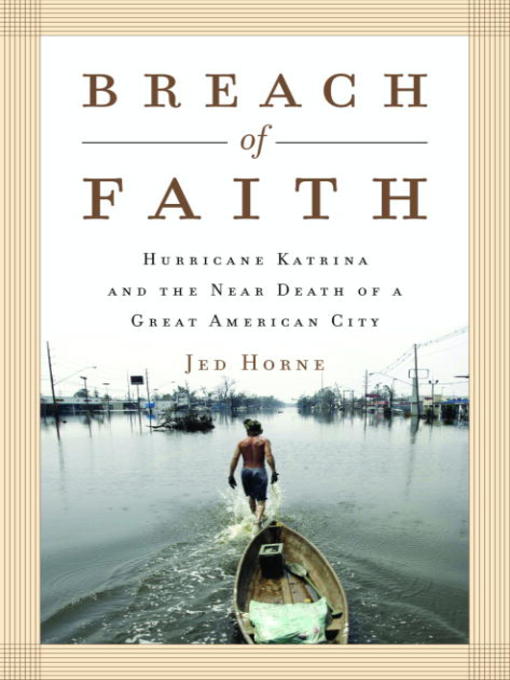
Breach of Faith
Hurricane Katrina and the Near Death of a Great American City
کتاب های مرتبط
- اطلاعات
- نقد و بررسی
- دیدگاه کاربران
نقد و بررسی

May 15, 2006
Horne, metro editor of the New Orleans Times-Picayune
, writes with the clipped, raw urgency of a thriller writer in this humanist account of what happened after the levees broke. As already widely reported, residents who ignored the mandatory evacuation order (thinking "Katrina... had all the makings of a flop") quickly found themselves surrounded by bloated corpses floating in toxic floodwaters and without a consolidated rescue effort. Horne quickly moves past the melodrama of a striking disaster to recount the stories of individuals caught in the storm's hellish aftermath or mired in the government's hamstrung response: a Louisiana State University climatologist goes head-to-head with the Army Corps of Engineers over inadequate flood protection and faulty levees; a former Black Panther provides emergency health care at a local mosque. Horne saves his sharpest barbs for President Bush and the Department of Homeland Security ("if Homeland Security... was what stood between America and the next 9/11, then... America was in deep trouble") for failing to muster an appropriate response. Big disasters spawn big books, and though Horne's isn't the definitive account, it's an honest, angry and wrenching response to a massively bungled catastrophe.

August 15, 2006
The New Orleans Times-Picayune's staff (including metro editor Horne) won Pulitzer Prizes for its coverage of Katrina. Such esteem is deserved, as Horne here demonstrates. His on-the-ground narrative emphasizes his ear for local idiom and his sharp eye for compelling detail. Although the various scenes sometimes swirl around in a fashion less organized than Katrina itself, Horne connects the horrors of the storm with relevant backstories very effectively.
Copyright 2006 Library Journal, LLC Used with permission.

July 1, 2006
Horne, metro editor of the" Times-Picayune," brings the enormous tragedy of Hurricane Katrina and the flooding of New Orleans down to a human scale by following several people swept up in the devastation from the day of the hurricane through the aftermath and recovery. They include a diabetic woman and her daughter trapped on a rooftop; a teenage son who evacuated then felt guilty about leaving his mother and sister; the social worker assisting victims in the Dome who was a mentor to the boy and later found his family; the university researcher who doggedly investigated the breaches and whose computer models had predicted the catastrophe that would befall the city if the levees were breached; the Charity Hospital doctor who worked to restore order when the hospital lost its power and watched as wealthier patients from nearby facilities were rescued ahead of her poor patients. Horne also steps back to analyze the factors that led to the catastrophe, including a long history of city and state political shenanigans, federal inattention and incompetence, and blatant racism. In the aftermath, he chronicles the social, political, legal, and psychological fallout--the lawsuits, suicides, and brain drain suffered by the city that was "one of America's last, fully intact regional cultures." Horne brings fresh insights in this engrossing account of the tragedy that uncovered a national disgrace of poverty and racism and raised questions about our nation's ability to address disasters wrought by nature.(Reprinted with permission of Booklist, copyright 2006, American Library Association.)

























دیدگاه کاربران